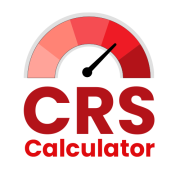Atlantic Immigration Program(AIP)

Get in Touch
Atlantic Immigration Program(AIP)
The Atlantic Immigration Program (AIP) is a federal immigration program that targets skilled foreign workers and international graduates who want to settle in any of the four Atlantic provinces of Canada, which are New Brunswick, Nova Scotia, Prince Edward Island and Newfoundland and Labrador. The Program also aims to help employers in these provinces hire qualified foreign candidates to fill the vacancies which they cannot fill with local talents. The Program allows 6000 newcomers to come to Atlantic Canada every year.
Atlantic Immigration Program was launched by the Canada government as Atlantic Immigration Pilot in 2017. One of the main goals of the Program was to tackle the demographic challenges faced by these provinces as they had a population that was aging fast. Though initially envisaged as a three-year program, the pilot was extended in 2019 for three more years. It ran as a pilot program until the end of the year 2021 and on December 17, 2021, it was made a permanent program.
Over the years, AIP has proved to be a successful program for immigrants and employers in the Atlantic Provinces. It provides permanent residence status to thousands of immigrants every year while addressing the needs of local employers. It has provided good results in terms of promoting population growth, increasing labour force and accelerating economic growth in these four provinces.
How to migrate to Canada under Atlantic Immigration Program(AIP)?
As AIP is an employer-driven program, you must have obtained a job offer from an employer in Atlantic Canada to apply under this program. Further, you must be an international graduate who completed the studies in one of the post-secondary institutions in Atlantic Canada or a skilled worker. Those residing inside Canada as a temporary resident and those from outside the country may apply under AIP.
Employers in AIP
AIP is basically an employer-driven program and for the employers to participate in this program, they must obtain designation from the province in which they operate. If they operate in multiple provinces, they must get seperate designation for each province. They must also meet certain requirements like providing support to the newcomer and their family to integrate well into the Canadian society.
Steps involved in the application process for AIP
- Obtain a job offer from a designated employer
- Soon the authorities will connect you with settlement services which will help you to get a settlement plan
- Send the settlement plan to your employer
- The employer will send an application for endorsement to the immigration department.
- Receive a provincial endorsement certificate
- Get a work permit support letter if work permit is required.
- Submit your application for permanent residence, along with endorsement certificate and other documents
- Wait for the Immigration, Refugees and Citizenship Canada(IRCC) to process your application
- If necessary, apply for a temporary work permit for the period until your application is processed.
- If your application is approved, you can live and work in Atlantic Canada.
- If needed, you may avail the support of your employer and a settlement service provider
Eligibility requirements for AIP
To be eligible to apply under AIP, you must meet the following eligibility requirements
Qualifying work experience
You should have at least one year’s work experience in an occupation classified under any of the Training, Education, Experience and Responsibilities (TEER) categories under the National Occupational Classification (NOC) 2021.
TEER 0: Management jobs including restaurant managers and mine managers
TEER 1: Professional jobs that usually require a degree from the university, that include doctors, dentists and architects
TEER 2: Technical jobs/skilled trades that require at least two years of college or apprenticeship. Also, occupations with supervisory/safety responsibilities including police officers and fire fighters.
TEER 3: Technical jobs/skilled trades that require less than 2 years of college/apprenticeship or more than 6 months of on-the-job training
TEER 4: Intermediate jobs that require high school and/or several weeks of job-specific training. The occupations in this category include industrial butchers, long-haul truck drivers and food and beverage servers.
Education
- Those who have received job offer in an occupation classified under TEER 0 or 1 of NOC 2021, must have at least one year’s post-secondary educational credential or higher.
- Those who have received a job offer in an occupation classified under TEER 2, 3 or 4 category of NOC 2021 must have a Canadian high school diploma or equal level of education from outside Canada.
If you have earned your educational qualifications from outside Canada, you will have to produce an Educational Credential Assessment (ECA) report to prove that your educational qualifications are equal to Canadian standards. Further, while presenting the ECA report along with the application for Canada PR, you must make sure that your ECA report is less than 5 years old.
Language
The level of language proficiency required is determined on the basis of NOC 2021 TEER category that is applicable to your job offer. So, if your job offer is for an occupation classified under TEER 0, 1, 2 or 3, you must have language proficiency equal to CLB/NCLC 5. If your occupation is classified under TEER 4, the minimum language proficiency level is CLB/NCLC 4. To prove your language proficiency, you must present the results of an approved language test and it must not be older than 2 years from the date of your application.
Settlement funds
Besides meeting other eligibility requirements, you must prove that you have enough funds to support yourself and your family members when you come to Canada. The amount depends on the size of your family. However, those who are already working in Canada with a valid work permit, need not show proof of funds.
Eligibility requirements for international graduates
International graduates applying under the Atlantic Immigration Program need not meet the work experience requirements. But they must meet certain other requirements, which include:
- Having completed a study program with a duration of at least two years, that has led to a degree or diploma or certificate or trade/apprenticeship certification
- They must have studied in a recognized post-secondary institution in Atlantic Canada
- They must have remained a full-time student during the entire duration of their studies
- During the last two years of their graduation, they must have stayed for at least 16 months in any of the four Atlantic Canada provinces
- They must have had the visa/permit for the entire period they stayed in Canada as a student or worked.
Documents required
Following are the documents required for applying under AIP. You must take care to keep all the documents ready in order to avoid any kind of delay in the application process.
- Language test results
- Documents to prove your educational qualification
- Educational Credential Assessment(ECA) report(if necessary)
- Proof of funds
- If you have already received a job offer, next, you will need a settlement plan.
- Those who have received a settlement plan will need a certificate of endorsement for your job offer issued by the province.
Do you wish to assess your eligibility to migrate to Canada or explore your options? Contact the Canada immigration experts of CanApprove to ensure a hassle-free immigration process.
CANADA
Get in Touch
Just a few steps to get it started!







